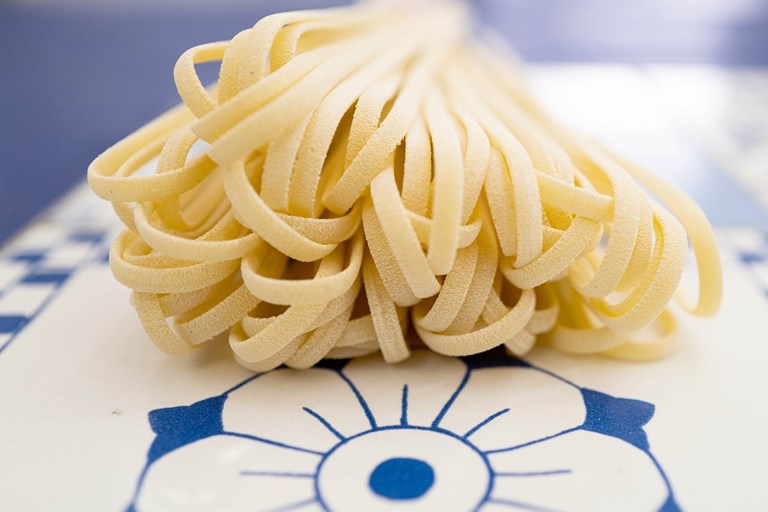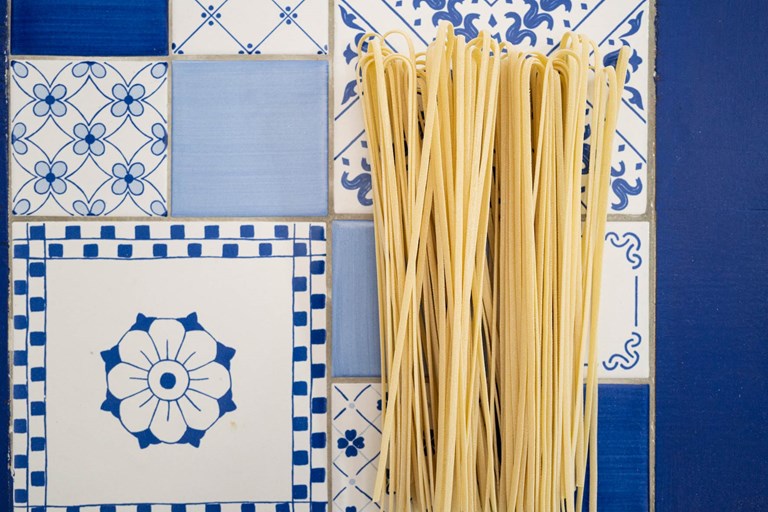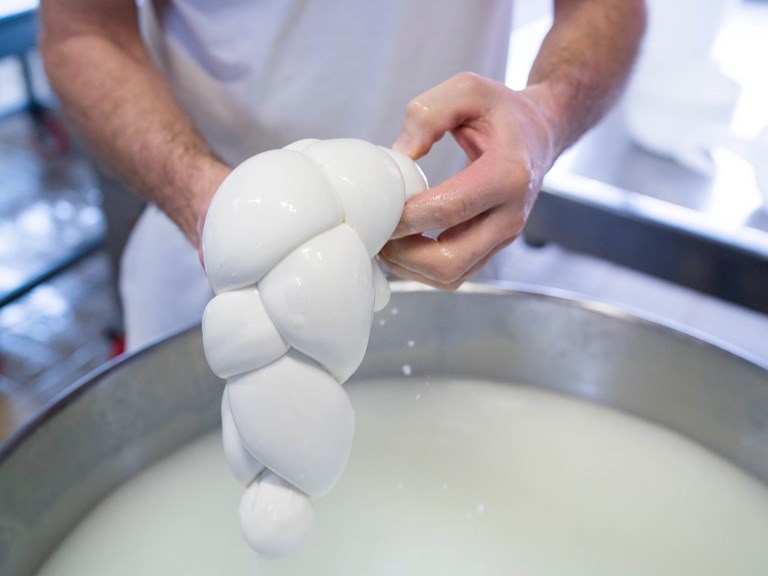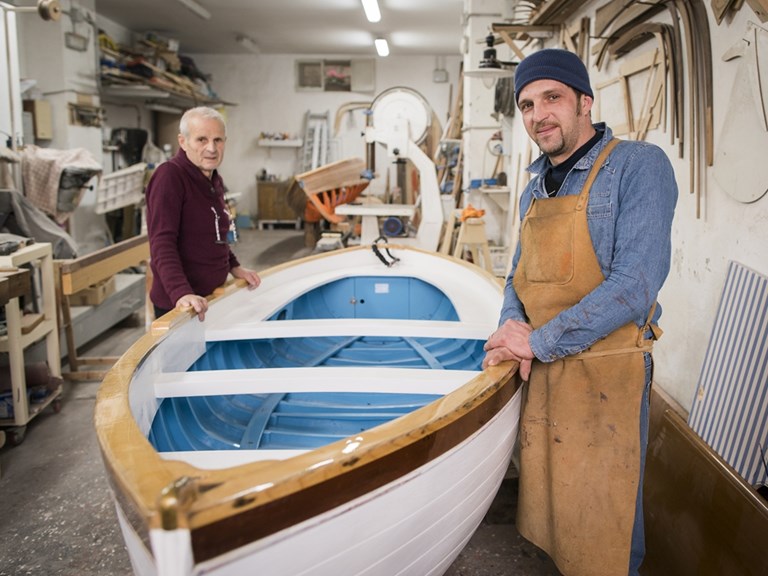GOOD THINGS: PASTIFICIO GENTILE, GRAGNANO
11.03.2020 BEST OF THE COAST
Go to Gragnano expecting to see enormous pasta-making plants, however, and you will be disappointed – in a good way. None of the twenty or so producers of an artisanal foodstuff that was granted IGP ‘protected origin’ status in 2013 works on a major industrial scale, and many are surprisingly small, operating out of historic buildings right in the centre of town.
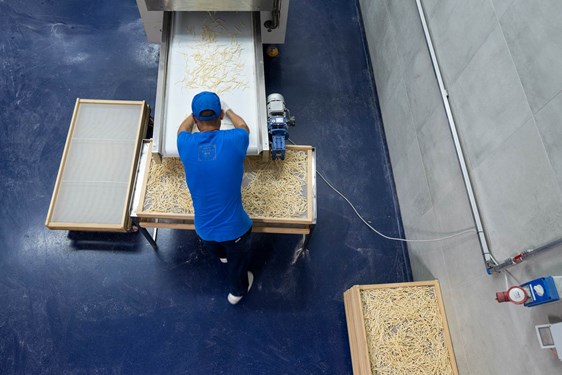
View
One of the most highly regarded Gragnano pasta producers, Pastificio Gentile broke the mould in 2016 when it moved into new premises in the Valle dei Mulini on the edge of town. That’s ‘new’ in a manner of speaking. The solid stone building in question dates back to 1650, as an inscription over the main door declares. But inside, a dazzling restoration project has created a highly functional space that is divided into pasta production zone, drying chambers, offices, and shop and tasting room.
The Valle dei Mulini, or ‘Mill Valley’, was named after the watermills that once lined the Vernotico, a fast-flowing stream fed by a spring on the lower slopes of the Monti Lattari. There were as many as 27 of them at one time – including the building now occupied by Pastificio Gentile. The water power was used to grind wheat that was then taken into the centre of Gragnano on carts and transformed into pasta, which was hung out to dry in central Via Roma – also known as ‘la strada dei maccheroni’ – on great wooden racks.
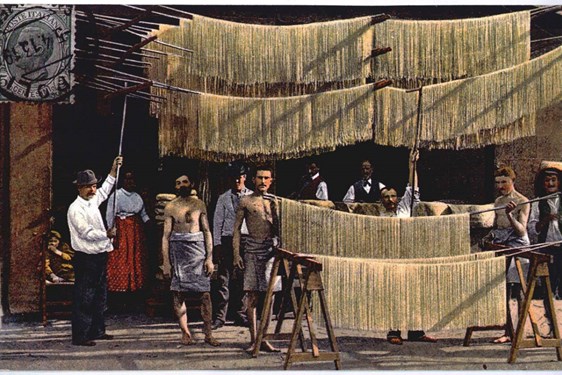
View
The wheat itself was not a local product, most of it being imported from Puglia. It was two other elements that gave this modest town its pasta vocation: wind and water. The latter was important not only as a source of energy but also as an ingredient: still today, locals say that the fresh mountain water that gurgles from their municipal drinking fountains is among the purest in Italy. As for the wind, it was the perfect drying agent: blowing constantly down the main street, almost always in the same direction, it had (most days) just the right level of humidity. The drying process was helped by the dark volcanic paving stones of Gragnano’s streets, which radiated the sun’s heat even after dark.
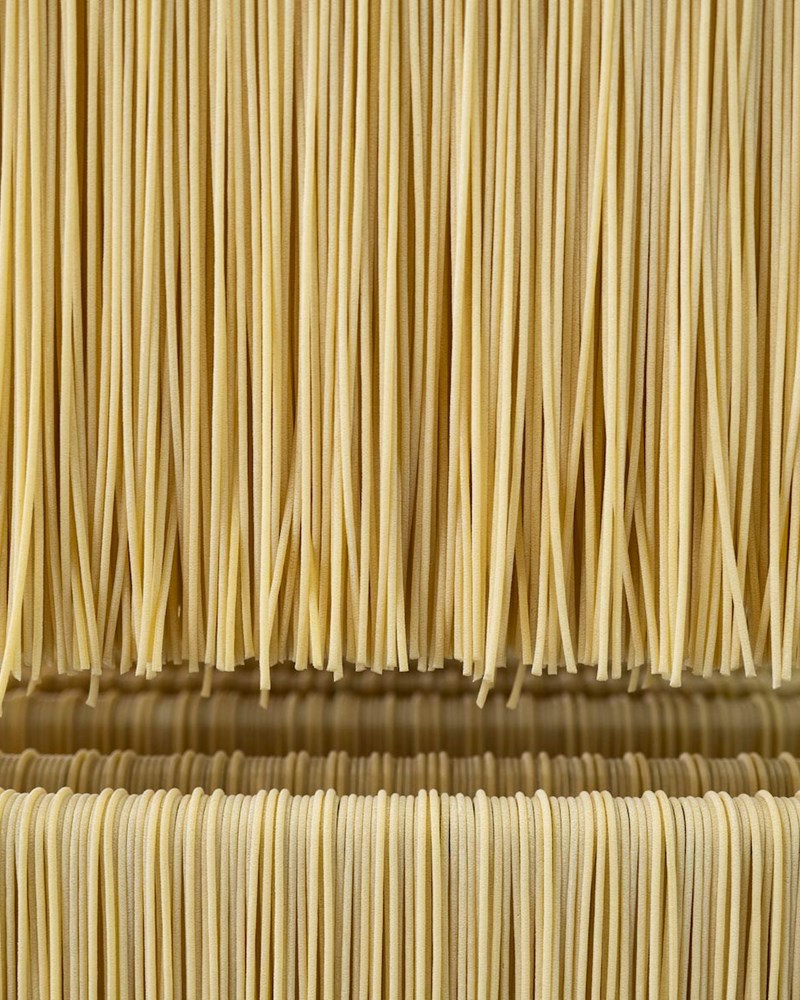
But the arrival of winter slowed things down; if the weather was inclement, it could take as long as two weeks to dry a single batch. The problem was finally ironed out when an engineer from Torre Annunziata called Michele Cirillo patented a drying machine in 1919 that recreated natural conditions with the help of braziers and giant fans. Crucially though, as well as attempting to reproduce the work of the wind and the sun as faithfully as possible, Cirillo also recognized that long drying times, of up to four days, were inevitable for top-quality pasta. That’s why Pastificio Gentile has long adopted the ‘Cirillo method’ for its products, unlike many large-scale producers in the rest of Italy and elsewhere, who use huge industrial machines to reduce the drying window to 24 hours or less.
On a tour of the factory, which is open to the public for pre-booked guided tours, Pastificio Gentile CEO Alberto Zampino revealed that even in a state-of-the-art facility such as this, making the perfect pasta still relies on a combination of experience and instinct. “When a day like today comes along”, he tells me over the noise of the machines, “with a high level of humidity, we switch production to special long pasta shapes like our SpaghettOne – the thickest spaghetti on the market, 2.7 millimetres in diameter. It needs at least 16 minutes cooking time”.
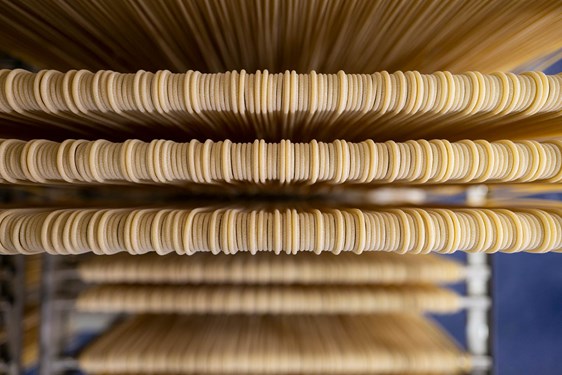
View
Pastificio Gentile makes around sixty different pasta formats, all produced using special bronze dies. These create a roughness on the surface of the pasta that, for top chefs like Le Sirenuse’s Gennaro Russo, is an essential characteristic of a foodstuff designed as an adherent base for sauces. The company also produces a line of vegetable and fruit preserves, curated by Alberto’s mother Maria, as well as special wholemeal and bambino-oriented pasta lines.
“I’m really happy that we’ve brought the aroma of semola pasta wheat back to Valle dei Mulini”, is Alberto Zampino’s parting shot. I notice that his hands are still dusted with flour – the true mark of a master pastaio.
Pastificio Gentile
Valle dei Mulini
Gragnano
Tel +39 081 801 3417
pastificiogentile.com
Photos © Roberto Salomone
Le Sirenuse Newsletter
Stay up to date
Sign up to our newsletter for regular updates on Amalfi Coast stories, events, recipes and glorious sunsets
